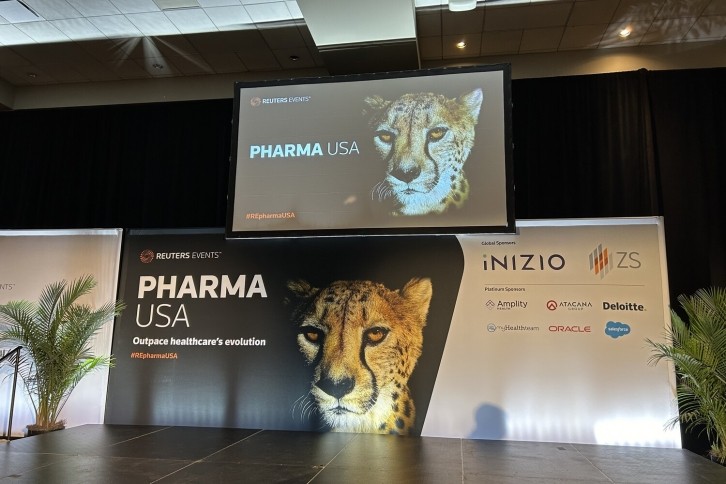Reuters Pharma USA 2024
GSK’s Maya Martinez Davis: ‘Trust is the most powerful thing in an organization’

That is what Maya Martinez-Davis, president, US commercial at GSK, told the audience at Reuters Pharma USA 2024.
In her keynote discussion, Martinez-Davis outlined her approach to senior leadership and explained how GSK is striving to break down silos and foster collaboration across departments.
“These structures are something we’ve built ourselves but there is no right model. What we need to try and do is get people, regardless of what part of the organization they’re working in, to be interested in the other ones,” she said.
Speaking from the Pennsylvania Convention Center, Martinez-Davis said it is crucial for employees to understand what the wider company is delivering and its goals and purpose, as ‘even if they don’t contribute to that directly, the fact that you understand it will make your more involved in decisions’.
“For GSK, half of our group is vaccines. How can you work in a company that has a broad portfolio of vaccines and not have that general knowledge? To give an example, if you work in oncology, oncology patients are immunodeficient so they’re going to want that innovation. There are always areas that can cross over.”
When considering how employees can be agile across different areas, the GSK executive also champions lateral career moves, stating: ‘just because you take a lateral move, doesn’t mean you can’t have a promotion or a salary increase’.
“The way I’ve looked at it is – what are the capabilities you’re going to gain from each position? Then, when you go to compete for those top roles, you have broader experience and you check more boxes,” she says.
Lateral moves can also foster a deeper sense of appreciation for other positions, something Martinez-Davis experienced first-hand during a recent trip to Washington.
“I was with my government affairs team and I spent a day with the state team. Now, my appreciation for what those people do every day is completely different. So I believe the more experiences you can have, the more you broaden your capabilities, that’s what lateral moves can give you.”
Another essential pillar of Martinez Davis’s leadership style is building trust, which she claims can be ‘a lot harder than performance and a lot harder than launching products’.
“How do you get people to feel that what they're doing contributes to something every single day? It’s difficult because reaching every individual is very different. If I think of my own leadership team, they couldn’t be more different. The way I talk to one or motivate one versus the other is very different.”
For Martinez Davis, transparency is very important and she will not shy away from discussing ‘things she has done wrong’ or decisions she may have approached differently if given the chance to do them again.
“When you start taking that fear out and enabling people to make decisions, they see that it’s ok to not get it right. When you start seeing that trust, it's the most powerful thing that you can get in an organization. Without a doubt, it will drive performance, it will drive innovation.”
In the age of AI and machine learning, it is important to make sure employees are engaged with this evolution, so they are curious about new possibilities rather than fearful.
Ensuring that tools are integrated into an organization’s culture rather than imposed from the top down has been a big learning at GSK, said Martinez Davis.
“When you use technology in the right way, there is no doubt it has impact. We’ve been using it in the field and understand what content customers want or need at the right time and how you want to take it to them.
“You have an organization that has been extremely successful in ways of working and has had tremendous results for the last 20 years. Some may say – I don’t need this. You’re not going to tell me how to work my territory better than me.
“So what we tried to do was to pilot certain areas and show the value – that’s the only way. If you don't get the buy-in of the people that are going to use these resources, it will never work. It must be changed in the culture of the company.”











